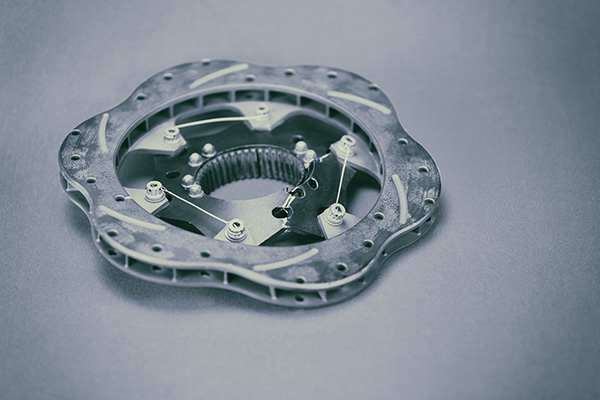
Experiencing a vibration in your car when you brake can be disturbing. It not only affects your driving comfort but also hints at potential underlying issues that need to be addressed. Understanding the reasons behind this vibration is crucial for maintaining your vehicle's safety and performance. We have prepared a list of the possible causes of this problem and solutions to keep your ride secure.
Common Causes of Car Vibrations During Braking
1. Warped Brake Rotors
Warped brake rotors are one of the most common issues behind a vibrating car when braking. Brake rotors are the discs that your brake pads clamp onto to stop the vehicle. Over time, these rotors can become warped due to excessive heat buildup and uneven wear. When this happens, the brake pads cannot make consistent contact with the rotor surface, leading to vibrations.
2. Worn Brake Pads
Brake pads play a critical role in your braking system. They are designed to create friction against the rotors to slow down your car. However, when brake pads become worn out, they can cause uneven contact with the rotors, resulting in vibrations. Regularly inspecting and replacing brake pads can prevent this issue.
3. Out-of-Balance Tires
Tires that are not balanced correctly can cause vibrations when braking. You can tell if this is the issue because you will also feel vibrations while driving. Imbalanced tires can lead to uneven wear, affecting your vehicle's overall performance, including its braking efficiency. Ensuring your tires are balanced and properly aligned can eliminate unnecessary vibrations.
4. Suspension Issues
Your car's suspension system is designed to provide a smooth ride by absorbing shocks and maintaining tire contact with the road. If components of the suspension system, such as struts or shocks, are worn or damaged, they can cause your car to vibrate, especially when braking. Regular maintenance of the suspension system is essential for a smooth driving experience.
5. Wheel Alignment Problems
Incorrect wheel alignment can cause a variety of issues, including vibrations when braking. Misaligned wheels can lead to uneven tire wear and reduce the effectiveness of your braking system. Regularly aligning your wheels ensures that your tires wear evenly and your car handles correctly.
How to Diagnose The Issue
1. Conduct a Visual Inspection
Start by visually inspecting your brake rotors and pads. Look for signs of wear, glazing, or damage. Warped rotors may show uneven wear patterns, while worn-out brake pads may appear thin or cracked. If you notice any of these issues, it's time to replace the affected components.
2. Test for Rotor Warping
To test for warped rotors, you can use a dial indicator. This tool measures the rotor's runout, or how much it deviates from being perfectly flat. If the runout exceeds the manufacturer's specifications, the rotors need to be resurfaced or replaced.
3. Check Tire Balance and Alignment
Visit a professional technician to check the balance of your tires and the alignment of your wheels. They can use specialized equipment to ensure your tires are correctly balanced and aligned according to the manufacturer's specifications. This can help eliminate vibrations caused by these factors.
4. Inspect the Suspension System
Have a pro at our auto repair shop inspect your suspension system, including struts, shocks, and other components. Worn or damaged suspension parts can significantly impact your vehicle's braking performance and cause vibrations. Replacing or repairing these components can restore a smooth braking experience.
Preventive Measures to Avoid Braking Vibrations
1. Regular Maintenance
Regular maintenance is key to preventing braking vibrations. This includes routine brake system inspections, tires, and suspension components. Catching and addressing issues early can prevent more significant problems down the road.
2. Proper Driving Habits
Avoid aggressive driving habits, such as hard braking and rapid acceleration, which can cause excessive heat buildup in your brake rotors and lead to warping. Practicing smooth and gradual braking can extend the life of your brake components.
3. Use High-Quality Parts
Opt for high-quality parts from reputable manufacturers when replacing brake pads, rotors, or other components. High-quality parts are more durable and can provide better performance, reducing the likelihood of vibrations.
Keep your vehicle safe and reliable. If you’re experiencing brake vibrations, please schedule a brake system check at Happy Wallet Quality Auto Repair today.